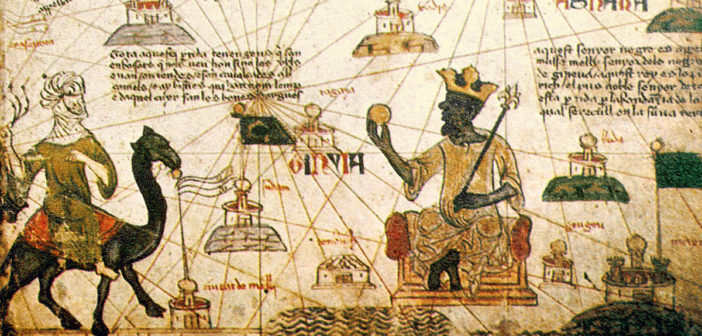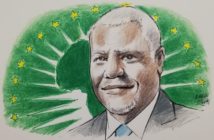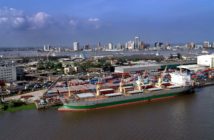In 2020, 17 African countries would celebrate the 60th anniversary of their independence. Even France would celebrate the 80th anniversary of its liberation from German occupation thanks to the soldiers who came from its colonies. When the COVID-19 pandemic interrupted all national and international activities, preparations for both anniversaries could not be brought to the agenda.
For a country, a national day is generally linked to the date it declared its independence from colonial rule or occupation. By looking at the case of African countries, it is quite interesting that each of these countries appeared on the stage of history on the day of independence.
In other words, these countries did not exist in history before independence. Thanks to the colonial powers, these countries are shaped and transformed into a modern state. So, they must necessarily be associated with European colonial states.
To illustrate, to know more about a country like Angola, information about the colonial power that ruled it before is needed. On the contrary, if the colonist power is known, then the country’s independence year, economy, politics, etc. comes up.
Before the colonial rule
Many of the unique names in the continent go back centuries before the existence of the European colonial rule. When Egypt is included, the history of the name used for North Africa, the Great Maghreb, dates back to the seventh century.
For Muslim Arabs, the entire geography they knew was divided into two as “mashriq” and “maghreb” from the very beginning. Mashriq referred to the east where the sun rises, while maghreb is the side where the sun sets.
The geography under the Great Sahara was known as “Bilâdüssûdan” indicating lands from the Red Sea Coast to the Atlantic Ocean. Nevertheless, in the recent era, the name of Sudan was limited to the Kingdom of Nub. Sahel, the area that separates Africa’s vast Sahara desert from more fertile lands in the south, got its name from the Arabic word “sahil” meaning shore.
Early Muslim geographers referred to the coasts of Sudan, Eritrea, Ethiopia, Djibouti and even Somalia as Bilâdülhabeş in their books. Ottomans also used the word “Habeşistan” for this region.
Extending from Kenya to Mozambique and later called Swahili by the Western people, the “Sevahil” region, meaning “coasts” in Arabic, was known as “Bilâdüzzenc” for a thousand years. Visitors and inhabitants all knew this part of the continent as Bilâdüzzenc.
A new map, new names
As colonialist invasions expanded through the inner parts of Africa in the second half of the 19th century, the geographical names were altered. Especially in 1885, Europeans divided Africa and arbitrarily drew up borders. Countries of the continent were now represented under different names on the maps, but with names such as French Africa, British Africa, Portuguese Africa, Spanish Africa, Belgian Africa, Italian Africa and German Africa.
When the area they occupied was vast, as in the case of France, French West Africa, French Equatorial Africa; or, when they shared a country, they called it British Somali, Italian Somali, and French Somali.
The problem is not just related to the late 1800s. The colonial powers interestingly demand Africans to accept these names even 60 years after independence.
Rich civilization
It should be stated that Africa has a very rich and inseparable history that dates back thousands of years. Speaking of Africa, if the Phoenicians, Romans, and Byzantines are seen as major players, instead of foreign intervention, that is nothing more than an effort to keep the continent’s natives invisible.
Some, especially French statesmen, claims colonialism brought “civilization” to Africa. This notion may be accepted by those educated in the colonial based curriculum.
However, an increasing number of African historians and geographers have been publishing works in which manipulation of African history can easily be realized. This is a positive step.
Moreover, it is claimed that the Tubu people in the common borders of Niger, Chad and Libya have the same ancestry as the Ethiopians. This indicates that they settled in vast geography.
Added to this, there is a large community living in 27 different African countries. They are called the Fulani by the Arabs, the Peul by the Europeans, and the Pular by themselves.
Any local language is spoken in several neighboring countries. Obviously, the key element of African identity is common values. Boundaries can be drawn, but common values continue to exist despite all obstacles.
Today, there are 54 independent countries in Africa. In these countries, both before colonialism and in colonial times, people made huge efforts to not surrender their country to colonists.
What matters is not how the Europeans conquered the land, but the resistance movements, although often heavily suppressed. In the history of Africa, it is difficult to find great nation wars and widespread armament until the colonial era.
Thus, peace and order were common. When the hostility overwhelmed the locals and they realized the intentions of the colonists, then, they only had the Lake Chad Basin. In there, Rabih, of Sudanese origin, confronted the French, gave one of the greatest struggles in the entire colonial history. The German orientalist Max von Openheim called him “Napoleon the Black” while French officer Emile Gentil wrote the book, “Empire de Rabah.”
Except for learning the languages of the colonists and for partly accepting their religion, Africans are successful in their struggle to exist compared to natives of the Americas.
Whether they gain their independence by losing millions of people like Algeria, or gaining their independence thanks to increasing international pressure, they benefited from this since they took the values of their past, especially those in their memories, without being completely erased.
Undoubtedly, in 1960, the establishment of a total of 17 newly independent states in one year, in a way that France granted to 14 countries and the U.K. to 3 countries, certainly opened new pages in the history of the continent. Now, Africans’ figures and events take part in textbooks rather than European ones.
The continent’s 21st step
Africa is shining more on the world stage in the 21st century. However, especially in the academic realm, instead of the must-mentioned issues of the past, issues such as security, terrorism, drug trafficking, poverty, immigration and underdevelopment are widespread. Then, when these subjects are studied, a particular country or region is likely to be associated with its colonial history.
These issues are very significant for Africans today, on the other hand, their solutions cannot be found with outside intervention. Besides, the continent’s core values will be more or less decisive.
There is no region in the world yet where peacekeepers equipped with the heaviest weapons end hostilities. There is a nice Turkish proverb meaning that a goal cannot be achieved with only the contributions of others. In other words, the real effort must come from his person.
Africans will be one of the most influential groups for the whole world in building the 21st century. In doing so, they will neither completely surrender to the outside world nor close themselves to it.
Nowadays, hundreds of thousands of African young are having education in every corner of the world with special thanks to scholarships. They get the knowledge that everyone needs.
In the example of the Republic of Mali, which had just several high schools for years, if the first university was opened in 2000, there must be a valid reason for all sorts of problems that Mali struggles with today.
That is, the people of this country, who have historical ties with almost one-third of the continent, were limited to their geography by colonialist France.
Rulers of today, who have difficulties maintaining peace and order, could not feed on the culture of their ancestors who ruled all of West Africa for centuries.
When it comes to Chad, the fifth-largest territory of Africa, France named “Territoire Militaire du Tchad/Chad Military District”. In keeping with this name, France imprisoned the Chad people on its borders. Today, people landing in Chad are generally surprised in face of walls created between Chad and the world.
One of the longest-lasting dynastic states in the world with more than a thousand years of power, the Kanim-Bornu Sultanate, rules in this country and its surroundings.
Their sultan in the 16th century, İdris Alevmai, was a ruler with connections to the outside world, sending ambassadors to capitals such as Istanbul, Marrakesh.
To sum up, the stones are in place and the number of statesmen who insist on self-determination is growing. This makes it necessary to accept the historical heritage of Africa as a whole.
The new generations, who regard colonialism as a misfortune that unexpectedly happened, are aware that from now on, the future will shine in the light of values and as a result of their efforts.
Bu yazı 10 Kasım 2020 tarihinde DailySabah.com‘da yayınlanmıştır.




